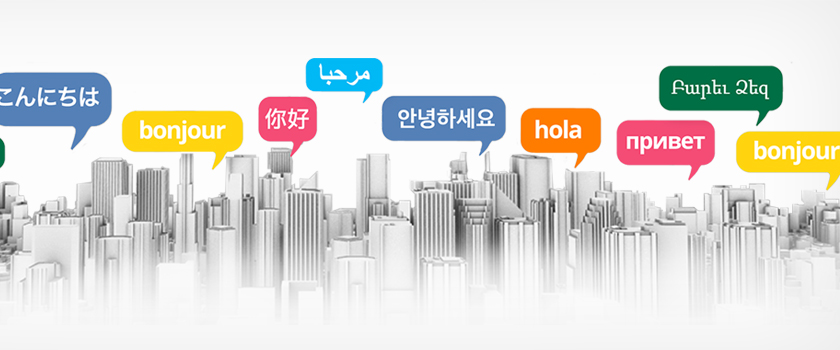2025 Offer Request a Quote Today and Grab a $50 Coupon for Free!
There is a general misconception concerning a translator and interpreter. Many potential clients contact interpreters, saying they are looking for a professional translator, when in fact, they are looking for an interpreter.
The very similar nature of both translator and interpreter is enough to create that confusion, leading people to use both interchangeably. Let’s take a look at what they really are, how these two subjects of linguists are similar to each other and what are the differences between translator and interpreter.
Contrary to popular belief, interpretation isn’t the word-for-word translation of a spoken message. Instead, it’s all about paraphrasing and interpreters need to transpose the source language within the required context, preserving its original meaning but taking care to rephrase the idioms and other cultural-specific references in ways that is comprehensible to the target audience.
An interpreter needs to possess some skills such as the ability to deliver their message instantly (or simultaneously) with the original message, with no aid from dictionary or reference material. In a nutshell, an interpreter only resources are experiences and a good memory—and quick reflexes too.
Basically, a translator is required to work on information in a written form—be it websites, video subtitles, software or print. However, unlike interpreters, most translators use computer-aided tools (CATs) in their work. This refers to converting the source content into a file type that is easy to work with, applying a translation memory to the given text and filling in the required gaps.
As the translator works through each section of the text, he may need to refer to glossaries and style guides to ensure quality. After everything is done, the translator needs to pass the translation to another linguist to proofread and convert the document back to its original format for ensuring the closest possible match.
Read: Difference Between Translation and Transcription
Both the interpreters and translators are provided with a source and target language and both work only in their mother language. They both attract a message from the source language and convert it into a target language.
Despite the differences between the translator and interpreter, one thing that unites them together is the nature of their job—they are both linguists and therefore, both require professional qualifications in addition to their skills.
The translators and interpreters are distinct from each other but these are the main categories to distinguish them through the viewpoint of a project:
Accuracy and Precision:
When it comes to having ample time to achieve accuracy and precision, translators surely have it more than the interpreters. This means that unlike interpreters, they have enough time to consult glossaries, dictionaries and other reference materials before delivering the final results.
Interpreters, on the other hand, barely have time to process the original message thoroughly and need to interpret the original message instantly (simultaneously or immediately afterword).
Tools and Helping Material:
As mentioned previously, translators have the advantage of using computer-aided tools to assist them at the time of translation, not to mention the dictionaries, computers, glossaries and reference material that they have access to.
On the contrary, an interpreter may only use headphones, microphone or a notepad when interpreting. On the plus side, they take their vast knowledge and the memory stored in their brain to assist them.
Direction of Message:
An interpreter is required to be fluent in both source and target language as they have to interpret in both the directions instantaneously. A translator works in only one direction: his own. Considering that, he needs to translate source content into their mother tongue and are not required be have fluency in the source language.
Acumen and Skills:
Although both translators and interpreters are required to have the proficiency to make metaphors, analogies and idioms resonate with the target audience, an interpreter has a tougher job than the translator.
He is required to capture tone, voice quality, inflections and other cues of the verbal communication and interpret it to the audience correctly. A translator, having to work on the written text, does not have to go through that hassle.
Now that the differences between the translator and interpreter are clear, the question you should now be asking yourself is: “Is my business ready to explore the international horizons? Do I need to hire an interpreter or a translator to aid me with the process?” .Asking the right questions will open the way to getting your business ready for international audience.

On the Labour Day Holiday, 147,000,000 Plus Chinese people choose to travel around the country. Labour Day is one of the
Read more
There are 196 countries in the world in which 25 of them are very rich which shows that they are
Read more
dwg: It means a drawing file save format created by AutoCAD, and now has been the standard format of 2D
Read more
To sum up the publicity stance, sometimes the marketing campaigns do not have their envisioned result. When publishing the brand ads
Read more
The state of Assam is the king producer of tea in India; Dibrugarh is the hub of tea gardens in
Read more
Digital signage is the form of electronic display that shows information, advertising and other messages. Digital signage such as LCD,
Read more
Did you know that Malay’s official name is Bahasa Malaysia? Did you know that it is basically a parent language
Read more
Portuguese is the language that far too often gets ignored. But the truth is Portuguese is one of the world’s
Read more
For the past 5-6 years, Translation Services have seen a great boom in business. Although, large corporate firms have been
Read more

